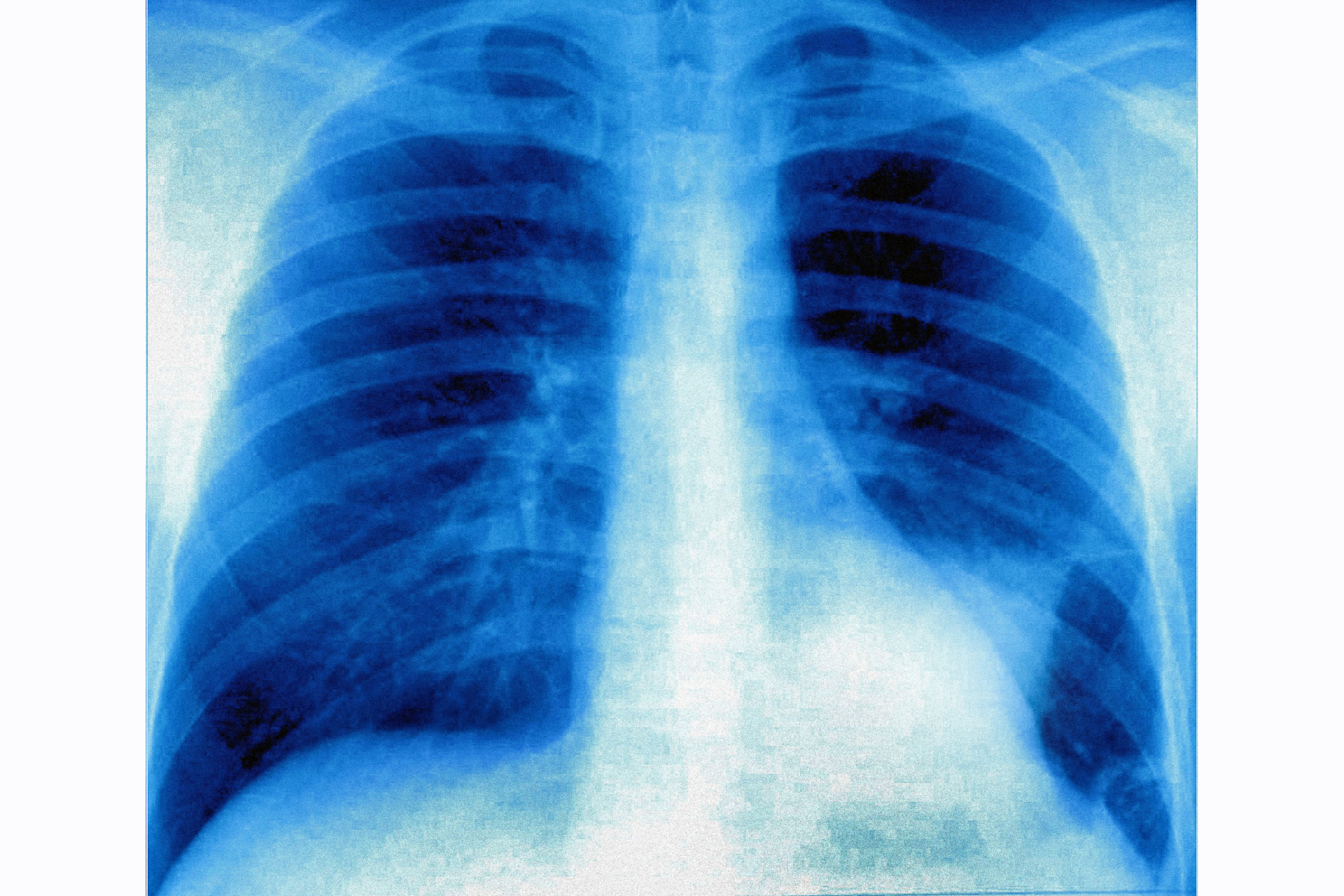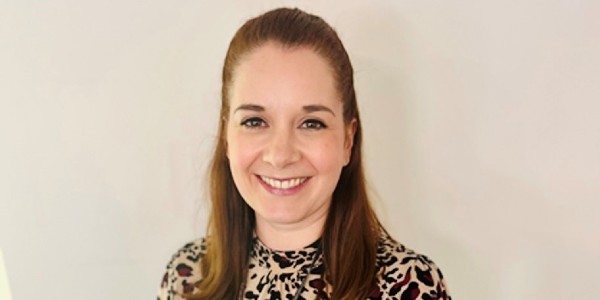A team led by Dr Nick Woznitza, consultant radiographer at University College London Hospitals and clinical academic in the School of Allied and Public Health, has published the results of a study which have the potential to shorten lung cancer diagnosis time.
Significant findings
The findings suggest that "immediate reporting by radiographers significantly shortened the time to diagnosis by around 31 days, cutting usual diagnosis and waiting time by half".
Results also show that radiographer reports are comparable to consultant radiologists, supporting the use of trained radiographers to help increase reporting resources in the NHS.

Lung cancer on the left pulmonary lobe, seen on a frontal x-ray of the chest. (Photo by: BSIP/Universal Images Group via Getty Images)
The report, published in Thorax, was welcomed by the Society of Radiographers. Chief Executive Officer Richard Evans said: 'The evidence base for practice developments is crucial for reassurance of patients, clinical colleagues and the wider healthcare community. The research evidence supporting radiographer reporting is constantly growing and is the basis on which the scope of radiographic practice is built.
"It is excellent to see this publication of work by Nick Woznitza and that it demonstrates so dramatically the value of trained and experienced radiographers in improving early diagnosis in cases of lung cancer."
Dr Woznitza was awarded an MBE in the Queen’s New Year Honours List for services to the NHS, in particular for his clinical and academic leadership skills in diagnostic radiography in response to the Covid-19 pandemic.
His clinical research and teaching are focused on how to improve outcomes for patients by increasing diagnostic capacity, including COVID-19 and lung cancer.
“We know that the early, rapid and accurate diagnosis of lung cancer will help improve outcomes for patients,” he said. “By utilising the expertise of reporting radiographers we found that we could reduce the time to diagnosis by half by giving patients the results of their X-rays at the time they were taken, explaining the findings and arranging a CT chest scan, the next part of their journey."
England-wide project
The findings of this study have been used to inform the design of an England-wide project to evaluate the use Artificial Intelligence (AI) to examine X-rays. By using AI to triage suspicious chest X-rays, the trial aims to reduce the amount of time a patient has to wait from the first chest X-ray to cancer diagnosis.
Some lung cancer cases are missed in chest X-rays because some lung nodules can be difficult to spot, however working with AI technology together with a healthcare practitioner could also pick up cases earlier.
The study is being led by Dr Woznitza and Professor David Baldwin, chair of NHS England’s Clinical Expert Group for Lung Cancer, and runs until June 2024. If the project demonstrates effectiveness, it could be introduced more widely across the health service.
Reference:
Woznitza N, Ghimire B, Devaraj A, et al Impact of radiographer immediate reporting of X-rays of the chest from general practice on the lung cancer pathway (radioX): a randomised controlled trial Thorax Published Online First: 08 November 2022. doi: 10.1136/thorax-2022-219210
Teaser image: BSIP/Universal Images Group via Getty Images
Related News
 People
PeopleMy doctoral journey
Dr Martine Harris describes her radiography journey to gaining her recent PhD
- Researchers
CoR launches new research strategy for 2021-26
Aiming to deliver research-based practice in radiography
- Researchers
How will AI influence the decisions of radiographers?
Clare Rainey’s research is examining the impact of an AI algorithm on decision making
